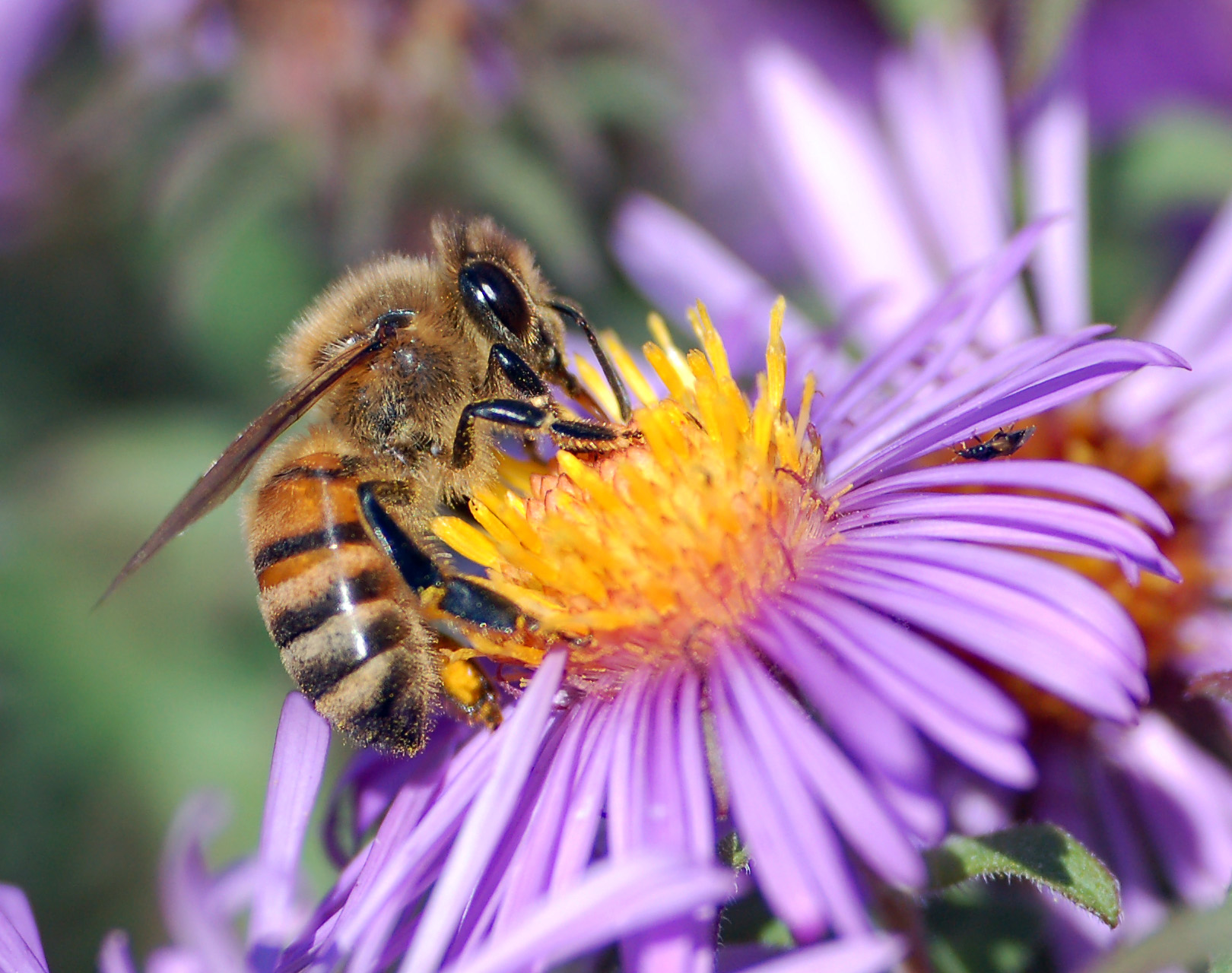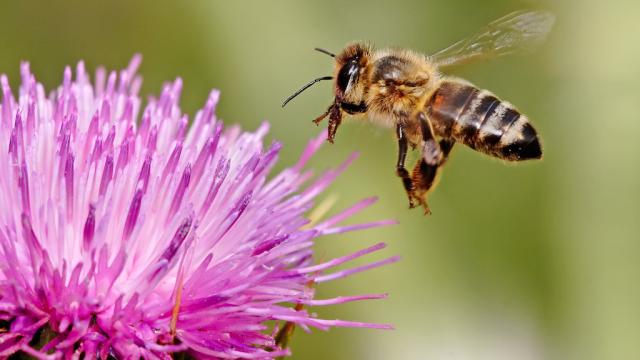It’s no secret that bees have been having a really rough time: Just yesterday, the rusty-patched bumble became the first bee in the continental United States officially listed under the Endangered Species Act. But that’s the tip of the iceberg for our buzzy little friends, who unlike their arsehole cousins — wasps — only want to pollinate plants with their fuzzy little bodies. Sadly, the best bees, honey bees (Apis mellifera L.), are dealing with yet another threat to their existence, while wasps just sit back and watch the world burn.
Image: Wikimedia Commons
According to new research published on March 21 in the Journal of Economic Entomology, the fungicide iprodione, which is commonly used in almond orchards, can cause honey bees to die within roughly 10 days after exposure. Honey bees, which usually live for roughly 122 days, are some of the most important pollinators we have, so unless you’re rooting for a season 3 episode 6 Black Mirror-type situation, this is bad news.
“Given that these fungicides may be applied when honey bees are present in almond orchards, our findings suggest that bees may face significant danger from chemical applications even when responsibly applied,” assistant professor of apiculture at Texas A&M University Juliana Rangel, a co-author on the study, said in a statement.

European Honey Bee pollinating a flower. (Image: Wikimedia Commons)
The team used a wind tunnel to test how various fungicides, including iprodione, would affect honey bees. Fungicides at various dosage levels and speeds were sprayed through the wind tunnel, while a control group of bees received no such fungicide treatment. The researchers found that the bees exposed to iprodione by itself or in some combination with other fungicides died at two to three times the rate of the unexposed bees after 10 days. At this time, its unclear why this particular fungicide is so deleterious to honeybees’ health.
All we know is that for several reasons, this is Bad. Very Bad.
“The honey bee (Apis mellifera L.) contributes ∼$17 billion [$AU22 billion] annually to the United States economy, primarily by pollinating major agricultural crops including almond, which is completely dependent on honey bee pollination for nut set,” the researchers wrote. “In protecting almond orchards from various pests and pathogens, heavy chemical treatments are employed during bloom. However, despite their ubiquitous use, the effects on honey bee health of the various pesticides used repeatedly in almond orchards are not well understood.”
Hopefully, the study will encourage growers to consider other alternatives to the fungicide, or spraying protocols that minimise honeybee exposure. Meanwhile, for a variety of reasons including not only this fungicide but also pesticides, disease and climate change, bees continue to die in droves, bringing us ever closer to our inevitable collapse as a species.
So yeah, save the bees — or else.
